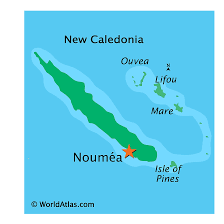by Richard Sanders, Associate Editor
The French Ambassador to Vanuatu and Solomon Islands has dismissed assertions of a military operation in New Caledonia, stating that reports and misinformation depicting the unrest as a conflict between communities oversimplify and distort the truth.
In early June, the Malvatumauri, Vanuatu’s Council of Chiefs, organized a protest outside the French Embassy in Port Vila to express concerns about the situation in New Caledonia, which has resulted in eight fatalities and extensive damage to property and businesses. They also presented a petition.
Recently, Jean-Baptiste Jeangène Vilmer, the senior French diplomat in the region, issued a five-point response, initially published in the Vanuatu Daily Post, addressing the issues raised in the petition. Vilmer reiterated that France’s actions in New Caledonia align with the United Nations Decolonisation Committee (C24) and comply with the principles of the 1998 Nouméa Accord.
Vilmer emphasized that decolonization goes beyond just independence and highlighted that New Caledonia, following three consultations since 2018 where the people exercised their right to self-determination, remains a part of France. He noted that as a result of the decolonization process initiated in 1988, New Caledonia now enjoys a significant level of autonomy, with the local Government and provinces possessing extensive powers except in areas of sovereign nature like defense, security, and currency.
Regarding the partially boycotted third referendum, Vilmer stated that it was the choice of the independentist parties, underscoring that the legitimacy of the vote was upheld by the UN, and the independentist parties participated in subsequent general elections.
Various regional bodies such as the Pacific Islands Forum, the Melanesian Spearhead Group, and the Vanuatu government have voiced concerns about the situation in New Caledonia and have called for constructive dialogue to chart a way forward. The former PIF secretary general criticized France for not respecting Kanak customs leading up to the third referendum.



